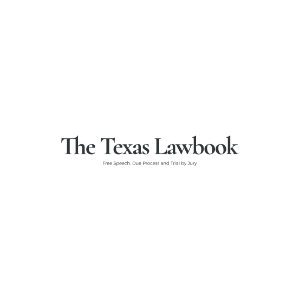Slip and fall accidents are one of the most common premise liability actions that a person may bring against a store owner, mall, grocery store, or even owner of a parking lot. These accidents often lead to severe injuries and lead to expensive medical bills. Many times these accidents could have been prevented if the owner of the property simply maintained their property in the manner that is expected. Slip and fall accidents can occur almost anywhere, however over years of representing slip and fall victims, we have noted that the following locations and property conditions often lead to slip and fall accidents.
- Stairways
- Doorways
- Retail stores
- Access ramps
- Highly trafficked areas
In addition, slips and falls can be caused by many property conditions.
- Items left on the ground where people walk
- Defects in floor installation
- Loose or unsecured carpeting
- Wet and slippery substances left on the floor
- Uneven or unstable floors
- Broken or improperly installed handrails
- Negligently maintained sidewalks.
Slip and fall accidents can happen in any of the above places and for any of the above reasons. However, slip and fall accidents can happen to anyone and for multiple other reasons.
Classifications of People on Property
Texas law defines that when you are on or enter someone else’s property they generally owe you some type of duty to protect you from injuries. However, what is not always clear is what classification of entrant you will be considered when you go on to another’s property. Texas law distinguishes that certain classifications of people will be owed a different duty depending on their status as either an invitee, licensee, or trespasser. The three classifications are:
- Invitee – An “invitee” is generally defined as someone who enters the property of another for the property possessor’s benefit. A customer in a store is considered an “invitee.”
- Licensee – A “licensee” is a person who enters the property of another for the mutual benefit of the land owner/possessor and the individual visiting.
- Trespasser – A “trespasser” is a person who enters the property of another without any invitation or right to be on the property. A person who enters a property as an invitee can become a trespasser if he leaves the area to which he was invited to enter–such as a store customer who enters into an area that is marked “employees only”.
It is crucial to each slip and fall case that your classification as an entrant on a piece of property is clearly established. This is because there are certain duties that a property owes or does not owe to each classification. The duties owed are as follows:
- Duty to an Invitee – A person in control of the premises owes a duty to exercise reasonable care to provide safe premises. This generally means that the landowner must disclose all unreasonably dangerous conditions of which he or she is aware of. In addition, a property owner may have a duty to exercise reasonable control and care to prevent injuries because of conditions that he should have knowledge of upon reasonable inspection of the property. Generally, this can be explained as a “knew or should have known” standard or “constructive knowledge.”.
- Duty to a Licensee – A property or premises owner owes a certain duty to those who may be classified as licensees. A person in control of the premises owes a licensee a duty to disclose only known dangerous conditions. There is no duty to inspect the property to make it reasonably safe for a licensee.
- Duty to a Trespasser – A person in control of the premises owes a trespasser only a minimal duty to not intentionally or willfully do him or her harm. Proving liability for an adult trespasser is extremely difficult in many cases. However, there are some exceptions. Such as the attractive nuisance doctrine and the doctrine of implied permission by acquiescence. These doctrines are discussed more below.
It should be apparent after learning about the classifications of each person and the respective duty they may be owed that it is crucial to your case to know and to establish your status on a piece of property.
Damages in Slip and Fall Accidents in Texas
Disabling temporary and permanent occupational injuries due to falls are approximate $250,000-$300,000 per year. Many of these accidents are the result of a slip and fall accident. While this number pertains to those who are injured in their workplace, the amount of money that people spend each year as a result of slip and fall accidents is over 14 billion dollars. It is no secret that going to the doctors or the hospital is expensive, even if you have insurance. However, if you have been injured in a slip and fall accident when you were in a store or on someone else’s property in Johnson County, then you may be able to recover some or all of the money you lost as a result of your accident. Texas law allows those who have been injured on another’s property, as a result of a slip and fall or for a variety of other reasons to file a premises liability action.
Contact a Johnson County Slip and Fall Accident Lawyer
Slip and Fall accidents are no joke and if you have been injured in a slip and fall accident you should not wait to contact an experienced attorney. Queenan Law represents personal injury victims across Texas, including Arlington, Fort Worth, Dallas, and Houston. Even if you are unsure whether you have a case or need an attorney, we encourage you to contact our law offices for a free, friendly, and completely confidential consultation regarding your legal matter. Call Queenan Law at (817) 476-1797 to get an assessment of your case today.






